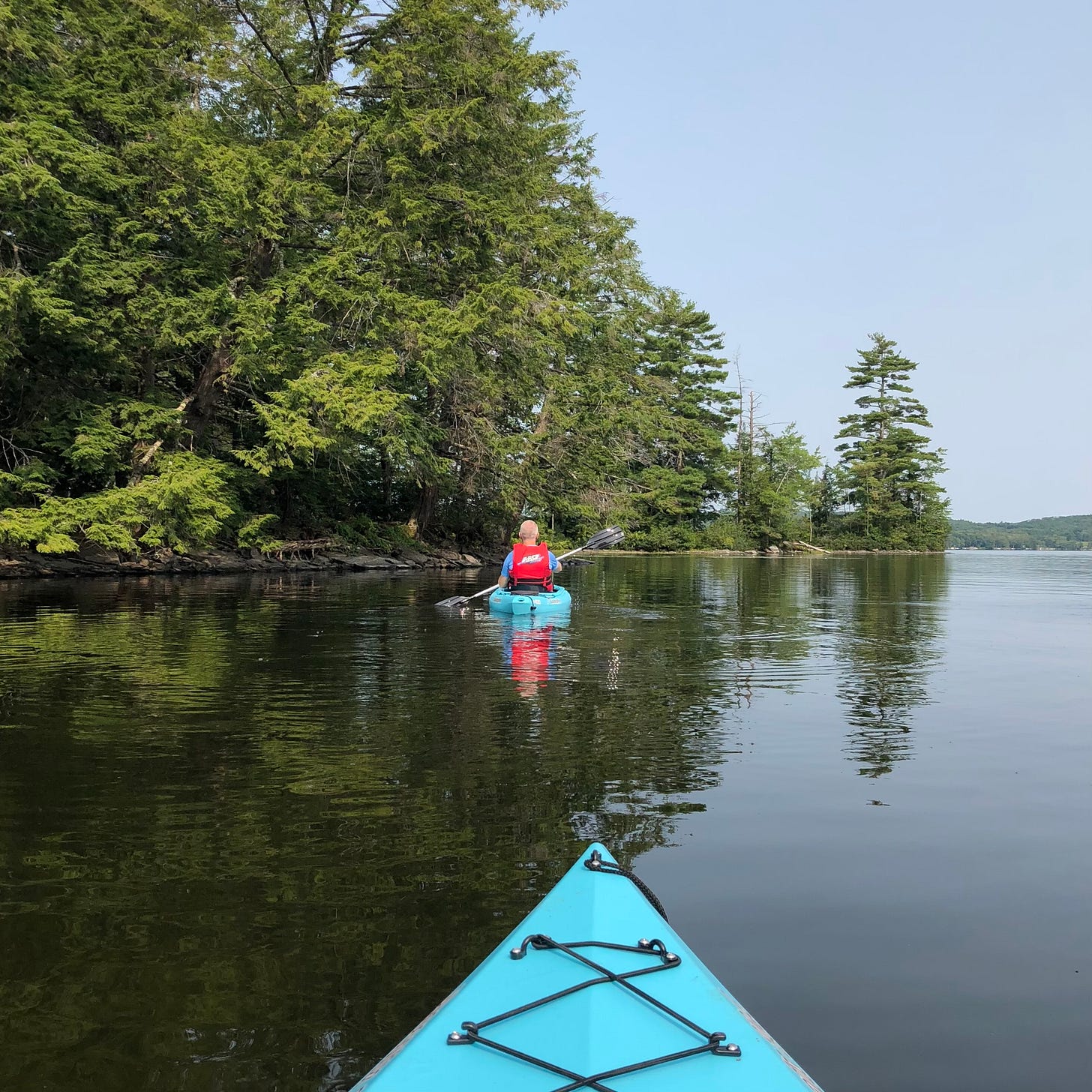There’s a term for the brief moment between tides, when the water is still and the current is neither coming in, nor going out. According to the NOAA, this happens when the tidal current reverses direction and slows down to a point of near-zero movement, before once again reversing direction.1
It’s called slack water.
When I was growing up, our family drove to Maine each summer. I always watched for the bridge, the one spanning the Piscataqua River. It links Portsmouth, New Hampshire with Kittery, Maine, and as we drove across, I’d lean my head out the open window and breathe in deeply, hoping to catch an early whiff of a briny sea breeze.
Welcome to Maine, reads the big blue sign at the foot of the bridge.
We leave tomorrow for our annual trip to my sister and brother-in-law’s house. They live in a quiet house on a quiet lake in Maine, and it’s one of the most peaceful places I’ve ever been.
Every year, our week in Maine feels like slack water.
Amy and Vinnie are generous, intentional hosts who ensure we feel loved and cared for. When they pick us up at the airport in Portland, there’s always cold water bottles in our cup holders. There are fresh flowers on a tray in our room, along with dark chocolates or maple sugar candy in the shape of a leaf. One year, Amy set a book on the bedside table for me—a novel about by a local author, set in mid coast Maine.
This week we’ll eat delicious food, read books and finish a puzzle, and rest in lounge chairs overlooking the lake while the guys fish. We’ll take a boat tour on the ocean and visit our favorite winery. And in between, we’ll float for hours on the lake, our faces turned toward the sun.
Slack water.
This pause is temporary, of course. Slack water doesn’t last more than a few moments, a brief respite between the ebb and flood tides of life.
We plan to enjoy the pause.
Have a good weekend, friends. I’ll see you back here next week.
Warmly,
Deb
Center for Operational Oceanographic Products and Services. (n.d.). What is the relationship between “Tides” and “Tidal Currents”. In NOAA Tides & Currents: Frequently Asked Questions. Retrieved August 7, 2025, from NOAA website: https://tidesandcurrents.noaa.gov/faq.html#04






Enjoy!